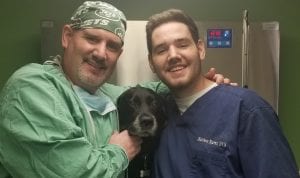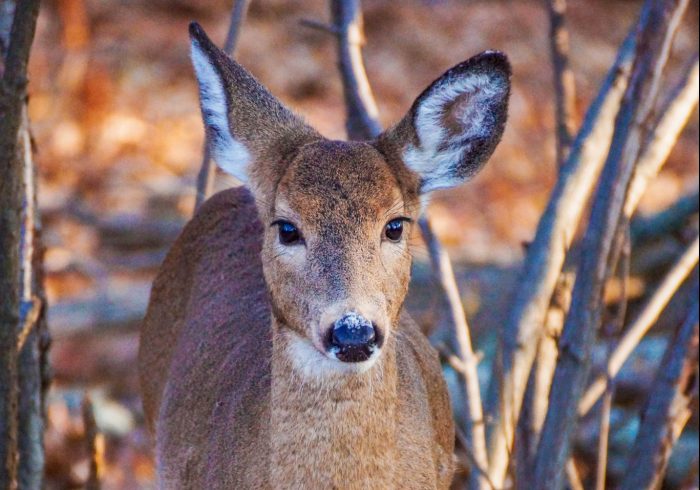Ask the Vet: COVID and wild animals
By Matthew Kearns, DVM

I recently saw an article that researchers in Canada were concerned with transmission of COVID-19 from deer (white-tailed deer) to a human, as well as deer. I thought that we only had to worry about white-tailed deer as a reservoir for Lyme disease. Now COVID? Ugghhh!!!
The Canadian scientists that performed this study did not have definitive proof that the individual that tested positive was infected directly from a deer. However, this individual had the same strain of COVID as the deer in the area and the individual did spend a considerable amount of time around deer.
The good news is a human has a much higher chance of catching COVID from another human than from a deer. Also, the symptoms this individual had were not more severe than a human to human infection. Canadian health officials do caution hunters to take additional precautions such as washing hands thoroughly, wearing goggles, and wearing a well-fitted mask when handling the respiratory tissues of a deer.
Previously, the only documented cases of animals passing the virus to humans were in mink. Six countries — Denmark, the Netherlands, Spain, Sweden, Italy and the United States — have reported cases of farmed mink infected with the coronavirus to the World Health Organization. Danish authorities also documented over 200 humans that contracted the virus from mink. Unfortunately, many of these minks were required to be culled to prevent further spread.
The main concern with any animal reservoir is the ability of the COVID, or any coronavirus for that matter, to mutate so easily.
The good news? Of the 31 species of animals that have been documented infected with COVID, current data shows that dogs and cats are terrible reservoirs of the virus. Although there are documented cases of both dogs and cats testing positive for COVID-19, there is no evidence that a human has been infected directly from a dog or cat. The CDC advises all pet owners to avoid contact with their pets when isolating with an infection (if possible). If a pet is exposed, symptoms are usually very mild or none at all.
Dr. Kearns practices veterinary medicine from his Port Jefferson office and is pictured with his son Matthew and his dog Jasmine.







